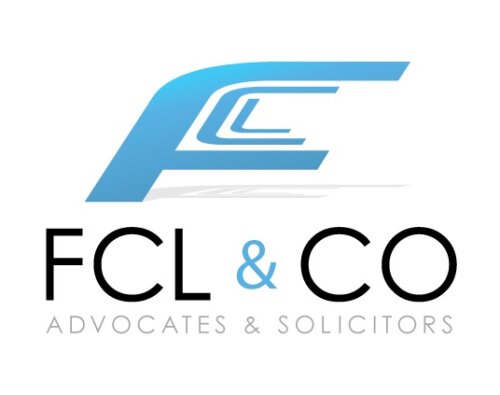Best Technology Transactions Lawyers in Malaysia
Share your needs with us, get contacted by law firms.
Free. Takes 2 min.
Or refine your search by selecting a city:
List of the best lawyers in Malaysia
About Technology Transactions Law in Malaysia
Technology Transactions Law in Malaysia encompasses a wide range of legal areas that manage the development, transfer, and use of technology in various business agreements. This includes licensing, intellectual property rights, software development and distribution, technology transfer, as well as data protection and privacy. The Malaysian legal environment is evolving, with regulations continually adapting to accommodate advancements in technology and the digital economy. Malaysia aims to be at the forefront of technological innovation in Southeast Asia, which makes understanding technology transactions critical for businesses and individuals involved in the tech sector.
Why You May Need a Lawyer
Engaging a lawyer in technology transactions can provide invaluable guidance in several circumstances:
- Complex Agreements: Dealing with intricate licensing and service agreements requires legal expertise to ensure all terms are comprehensively covered and mutually beneficial.
- Intellectual Property Protection: A lawyer can help safeguard intellectual property assets by drafting and negotiating licensing agreements or conducting due diligence in transactions.
- Data Privacy Compliance: Ensuring agreements comply with data protection laws and regulations, such as Malaysia’s Personal Data Protection Act (PDPA), is critical.
- Resolving Disputes: Legal assistance is crucial when handling breaches of contract or disputes arising from technology transactions.
- Mergers & Acquisitions: Lawyers play a key role in technology-focused mergers and acquisitions, addressing legal issues related to tech assets and liabilities.
Local Laws Overview
In Malaysia, technology transactions are governed by a combination of national laws and sector-specific regulations. Key aspects include:
- Intellectual Property Laws: The Patents Act 1983, Copyright Act 1987, and Trade Marks Act 1976 outline the protection and enforcement of intellectual property rights in technology-related transactions.
- Personal Data Protection Act 2010 (PDPA): This regulates the processing of personal data in commercial transactions, including consent and security obligations.
- Contracts Act 1950: Governs the formation and enforcement of commercial contracts, including technology-related agreements.
- Communications and Multimedia Act 1998: Governs activities related to digital services and electronic communications.
Frequently Asked Questions
What is a technology transaction?
A technology transaction involves the legal agreements and processes related to the development, transfer, or commercialization of technology products or services.
Do I need a lawyer for software licensing?
Yes, it's recommended to engage a lawyer to draft, review, or negotiate software licensing agreements to ensure your rights and obligations are clearly defined and protected.
How does the PDPA affect technology transactions?
The PDPA imposes obligations related to the collection, use, and management of personal data in technology transactions, impacting how companies handle data processing agreements.
What is the significance of intellectual property in technology transactions?
Intellectual property rights are crucial in technology transactions as they define ownership and usage rights of technology assets, impacting licensing and commercialization strategies.
Are technology transactions limited to software?
No, technology transactions can include hardware, telecommunications services, biotechnology, and any other sector involving technological tools or innovations.
What should a technology transaction agreement include?
It should include terms related to intellectual property rights, confidentiality, payment terms, liability limitations, warranties, and dispute resolution mechanisms.
Can technology transactions cross international borders?
Yes, technology transactions can be international, involving different jurisdictions and requiring compliance with local laws in each region involved.
What legal risks are involved in technology transactions?
Risks include IP infringement, data breaches, non-compliance with local laws, and contractual disputes. Legal advice can mitigate these risks.
How are disputes in technology transactions resolved?
Disputes can be resolved through negotiation, mediation, arbitration, or litigation, depending on the terms set in the transaction agreement.
What is the role of due diligence in technology transactions?
Due diligence is essential to identify potential risks, verify the title of intellectual property rights, and ensure compliance with regulatory requirements.
Additional Resources
Consider consulting the following resources for further guidance in technology transactions:
- Malaysian Intellectual Property Corporation (MyIPO)
- Malaysian Communications and Multimedia Commission (MCMC)
- Personal Data Protection Department (JPDP)
- Malaysia Digital Economy Corporation (MDEC)
Next Steps
If you require legal assistance in technology transactions, consider the following steps:
- Research Law Firms: Look for law firms with expertise in technology transactions and consult with them about your specific needs.
- Prepare Documents: Gather all relevant documents related to your technology transaction for review during consultations.
- Consult a Lawyer: Schedule a consultation to discuss your legal needs, obtain advice, and develop a strategy for your technology transaction.
These steps will ensure that your technology transactions are legally sound and aligned with both local and international legal requirements.
Lawzana helps you find the best lawyers and law firms in Malaysia through a curated and pre-screened list of qualified legal professionals. Our platform offers rankings and detailed profiles of attorneys and law firms, allowing you to compare based on practice areas, including Technology Transactions, experience, and client feedback.
Each profile includes a description of the firm's areas of practice, client reviews, team members and partners, year of establishment, spoken languages, office locations, contact information, social media presence, and any published articles or resources. Most firms on our platform speak English and are experienced in both local and international legal matters.
Get a quote from top-rated law firms in Malaysia — quickly, securely, and without unnecessary hassle.
Disclaimer:
The information provided on this page is for general informational purposes only and does not constitute legal advice. While we strive to ensure the accuracy and relevance of the content, legal information may change over time, and interpretations of the law can vary. You should always consult with a qualified legal professional for advice specific to your situation.
We disclaim all liability for actions taken or not taken based on the content of this page. If you believe any information is incorrect or outdated, please contact us, and we will review and update it where appropriate.
Browse technology transactions law firms by city in Malaysia
Refine your search by selecting a city.
















